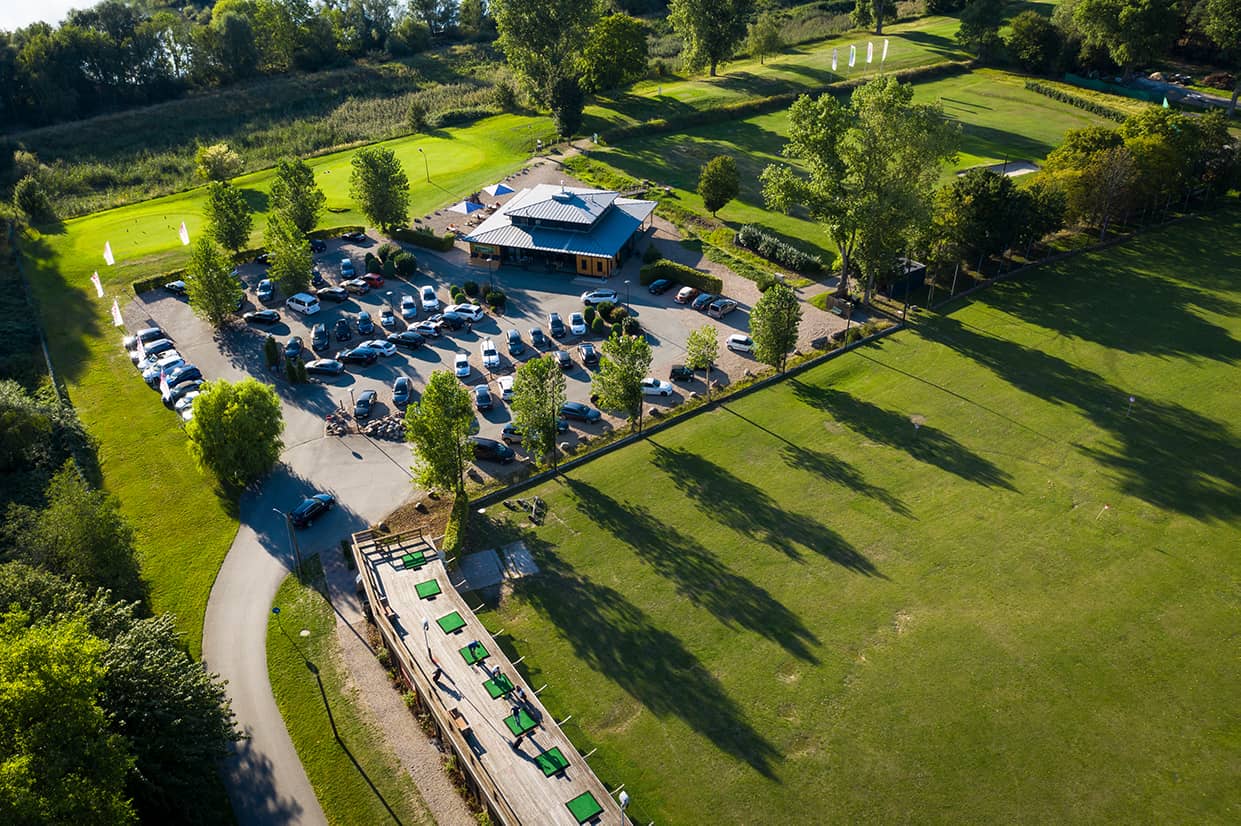General information about data processing
(1) Scope of processing of personal data
In principle, we collect and use personal data of our users only to the extent necessary for the provision of a functional website and our content and services. The collection and use of personal data of our users takes place regularly only with the consent of the user. An exception applies to cases in which prior consent can not be obtained for reasons of fact and the processing of the data is permitted by law.
(2) Legal basis for the processing of personal data
Insofar as we obtain the consent of the data subject for processing of personal data, Art. 6 para. 1 lit. a EU General Data Protection Regulation (GDPR) as the legal basis for the processing of personal data.
In the processing of personal data necessary for the performance of a contract to which the data subject is a party, Art. 6 para. 1 lit. b DSGVO as legal basis. This also applies to processing operations required to carry out pre-contractual actions.
Insofar as processing of personal data is required to fulfill a legal obligation that is subject to our company, Art. 6 para. 1 lit. c DSGVO as legal basis.
In the event that vital interests of the data subject or another natural person require the processing of personal data, Art. 6 para. 1 lit. d DSGVO as legal basis.
If processing is necessary to safeguard the legitimate interests of our company or a third party, and if the interests, fundamental rights and freedoms of the data subject do not prevail over the first interest, Art. 6 para. 1 lit. f DSGVO as legal basis for processing.
(3) Data deletion and storage duration
The personal data of the data subject will be deleted or blocked as soon as the purpose of the storage is deleted. In addition, such storage may take place if provided for by the European or national legislator in EU regulations, laws or other regulations to which the controller is subject. Blocking or deletion of the data also takes place when a storage period prescribed by the standards mentioned expires, unless there is a need for further storage of the data for conclusion of a contract or fulfillment of the contract.
Provision of the website and creation of logfiles
(1) Description and scope of data processing
Each time our website is accessed, our system automatically collects data and information from the computer system of the calling computer.
The following data is collected here:
Information about the browser type and version used
The operating system of the user
The Internet service provider of the user
The IP address of the user
Date and time of access
Websites from which the system of the user comes to our website
Websites that are accessed by the user’s system through our website
The data is also stored in the log files of our system. A storage of this data together with other personal data of the user does not take place.
(2) Legal basis for data processing
The legal basis for the temporary storage of data and log files is Art. 6 para. 1 lit. f DSGVO.
(3) Purpose of the data processing
The temporary storage of the IP address by the system is necessary to allow delivery of the website to the computer of the user. To do this, the user’s IP address must be kept for the duration of the session.
Storage in log files is done to ensure the functionality of the website. In addition, the data is used to optimize the website and to ensure the security of our information technology systems. An evaluation of the data for marketing purposes does not take place in this context.
For these purposes, our legitimate interest in the processing of data according to Art. 6 para. 1 lit. f DSGVO.
(4) Duration of storage
The data will be deleted as soon as it is no longer necessary for the purpose of its collection. In the case of collecting the data for providing the website, this is the case when the respective session is completed.
In the case of storing the data in log files, this is the case after no more than seven days. An additional storage is possible. In this case, the IP addresses of the users are deleted or alienated, so that an assignment of the calling client is no longer possible.
(5) Opposition and removal possibility
The collection of data for the provision of the website and the storage of the data in log files is essential for the operation of the website. There is consequently no contradiction on the part of the user.
Use of cookies
(1) Description and scope of data processing
Our website uses cookies. Cookies are text files that are stored in the Internet browser or the Internet browser on the user’s computer system. When a user visits a website, a cookie may be stored on the user’s operating system. This cookie contains a characteristic string that allows the browser to be uniquely identified when the website is reopened.
We use cookies to make our website more user-friendly. Some elements of our website require that the calling browser be identified even after a page break.
The following data is stored and transmitted in the cookies:
(1) language settings
(2) Items in a shopping cart
(3) log-in information
In addition, we use cookies on our website that allow an analysis of users’ browsing behavior.
In this way, the following data can be transmitted:
(1) Entered search terms
(2) frequency of page views
(3) Use of Website Features
The data of the users collected in this way are pseudonymized by technical precautions. Therefore, an assignment of the data to the calling user is no longer possible. The data will not be stored together with other personal data of the users.
When accessing our website, users are informed by an information banner about the use of cookies for analysis purposes and referred to this privacy policy. In this context, there is also an indication of how the storage of cookies in the browser settings can be prevented.
(2) Legal basis for data processing
The legal basis for the processing of personal data using cookies is Article 6 (1) lit. f DSGVO.
(3) Purpose of the data processing
The purpose of using technically necessary cookies is to facilitate the use of websites for users. Some features of our website can not be offered without the use of cookies. For these, it is necessary that the browser is recognized even after a page break.
We require cookies for the following applications:
(1) shopping cart
(2) adoption of language settings
(3) Remember keywords
The user data collected through technically necessary cookies will not be used to create user profiles.
The use of the analysis cookies is for the purpose of improving the quality of our website and its contents. Through the analysis cookies we learn how the website is used and thus can constantly optimize our offer, such as search terms, frequency of page views, use of website functions.
For these purposes, our legitimate interest in the processing of personal data pursuant to Art. 6 para. 1 lit. f DSGVO.
(4) Duration of storage, objection and disposal options
Cookies are stored on the computer of the user and transmitted by this on our side. Therefore, as a user, you have full control over the use of cookies. By changing the settings in your internet browser, you can disable or restrict the transmission of cookies. Already saved cookies can be deleted at any time. This can also be done automatically. If cookies are disabled for our website, it may not be possible to use all the functions of the website to the full.
The transmission of Flash cookies can not be prevented by the settings of the browser, but by changing the settings of the Flash Player.
(5) Data protection in applications and in the application process
The controller collects and processes the personal data of applicants for the purpose of processing the application process. The processing can also be done electronically. This is particularly the case if an applicant submits corresponding application documents to the controller by electronic means, for example by e-mail or via a web form available on the website. If the controller concludes a contract of employment with an applicant, the data transmitted will be stored for the purposes of the employment relationship in accordance with the law. If no employment contract with the candidate is concluded by the controller, For example, the application documents will be automatically deleted two months after notification of the rejection decision, provided that deletion does not conflict with any other legitimate interests of the controller. Other legitimate interest in this sense, for example, a burden of proof in a procedure under the General Equal Treatment Act (AGG).
(6) Privacy policy for the use and use of Google Analytics (with anonymization function)
The controller has integrated on this website the component Google Analytics (with anonymization function). Google Analytics is a web analytics service. Web analysis is the collection, collection and analysis of data about the behavior of visitors to websites. Among other things, a web analysis service collects data on which website an affected person has come to a website (so-called referrers), which subpages of the website were accessed or how often and for which length of stay a subpage was viewed. A web analysis is mainly used to optimize a website and cost-benefit analysis of Internet advertising.
The operating company of the Google Analytics component is Google Inc., 1600 Amphitheater Pkwy, Mountain View, CA 94043-1351, USA.
The controller uses the addition “_gat._anonymizeIp” for web analytics via Google Analytics. By means of this addendum, the IP address of the Internet access of the data subject will be shortened and anonymised by Google if the access to our website is from a Member State of the European Union or from another state party to the Agreement on the European Economic Area.
The purpose of the Google Analytics component is to analyze visitor flows on our website. Among other things, Google uses the data and information obtained to evaluate the use of our website, to compile for us online reports showing the activities on our websites, and to provide other services related to the use of our website.
Google Analytics uses a cookie on the information technology system of the person concerned. What cookies are, has already been explained above. By using this cookie Google is enabled to analyze the usage of our website. Each time one of the pages of this website is accessed by the controller and a Google Analytics component has been integrated, the Internet browser on the information technology system of the person concerned is automatically initiated by the respective Google Analytics component To submit data to Google for online analysis purposes. In the course of this technical process, Google receives knowledge about personal data, such as the IP address of the person concerned, which is used by Google, among other things,
The cookie stores personally identifiable information, such as access time, the location from which access was made, and the frequency of site visits by the data subject. Each time you visit our website, your personal information, including the IP address of the Internet connection used by the data subject, is transferred to Google in the United States of America. This personal information is stored by Google in the United States of America. Google may transfer such personal data collected through the technical process to third parties.
The affected person can prevent the setting of cookies through our website, as shown above, at any time by means of a corresponding setting of the Internet browser used and thus permanently contradict the setting of cookies. Such a setting of the Internet browser used would also prevent Google from setting a cookie on the information technology system of the person concerned. In addition, a cookie already set by Google Analytics can be deleted at any time via the Internet browser or other software programs.
Furthermore, the data subject has the option of objecting to and preventing the collection of the data generated by Google Analytics for the use of this website and the processing of this data by Google. To do this, the person must download and install a browser add-on at https://tools.google.com/dlpage/gaoptout. This browser add-on informs Google Analytics via JavaScript that no data and information about website visits may be transmitted to Google Analytics. The installation of the browser add-on is considered by Google as a contradiction. If the information technology system of the data subject is deleted, formatted or reinstalled at a later date, the affected person must re-install the browser add-on to disable Google Analytics. If the browser add-on is uninstalled or disabled by the data subject or any other person within their sphere of control, it is possible to reinstall or reactivate the browser add-on. Further information and the applicable privacy policy of Google can be found at https://www.google.com/intl/en/policies/privacy/ and at http://www.google.com/analytics/terms/en.html. Google Analytics is explained in more detail at https://www.google.com/intl/de_de/analytics/. which may be attributed to their power domain, uninstalled or deactivated, there is the possibility of reinstalling or reactivating the browser add-on. More information and Google’s applicable privacy policy can be found at https://www.google.com/intl/en / policies / privacy / and http://www.google.com/analytics/terms/en.html. Google Analytics is explained in more detail at https://www.google.com/intl/de_de/analytics/. which may be attributed to their power domain, uninstalled or deactivated, there is the possibility of reinstalling or reactivating the browser add-on. More information and Google’s applicable privacy policy can be found at https://www.google.com/intl/en / policies / privacy / and http://www.google.com/analytics/terms/en.html. Google Analytics is explained in more detail at https://www.google.com/intl/de_de/analytics/.
(7) Privacy Policy on Use and Use of Facebook
The controller has integrated components of the company Facebook on this website. Facebook is a social network.
A social network is an Internet-based social meeting place, an online community that typically allows users to communicate with each other and interact in virtual space. A social network can serve as a platform to exchange views and experiences, or allows the Internet community to provide personal or business information. Facebook allows social network users to create private profiles, upload photos and socialize via friend requests.
The operating company of Facebook is Facebook, Inc., 1 Hacker Way, Menlo Park, CA 94025, USA. Persons responsible for the processing of personal data, if an affected person lives outside the US or Canada, are Facebook Ireland Ltd., 4 Grand Canal Square, Grand Canal Harbor, Dublin 2, Ireland.
Each visit to one of the individual pages of this website, which is operated by the controller and on which a Facebook component (Facebook plug-in) has been integrated, the Internet browser on the information technology system of the person concerned automatically by the respective Facebook Component causes a representation of the corresponding Facebook component of Facebook to download. An overview of all Facebook plug-ins can be found at https://developers.facebook.com/docs/plugins/?locale=en_US. As part of this technical process, Facebook receives information about which specific underside of our website is visited by the person concerned.
If the data subject is simultaneously logged into Facebook, Facebook recognizes with each visit to our website by the data subject and during the entire duration of the respective stay on our website, which specific underside of our website the data subject visits. This information is collected through the Facebook component and assigned by Facebook to the respective Facebook account of the data subject. If the person concerned activates one of the Facebook buttons integrated on our website, for example the “Like” button, or if the person concerned makes a comment, Facebook assigns this information to the personal Facebook user account of the person concerned and saves this personal data ,
Facebook always receives information via the Facebook component that the data subject has visited our website if the data subject is logged in to Facebook at the same time as accessing our website; this happens regardless of whether the person clicks on the Facebook component or not. If such a transfer of this information to Facebook is not wanted by the data subject, it can prevent the transfer by logging out of their Facebook account before calling our website.
The data policy published by Facebook, which is available at https://de-de.facebook.com/about/privacy/, provides information on the collection, processing and use of personal data by Facebook. It also explains which options Facebook offers to protect the privacy of the data subject. In addition, different applications are available, which make it possible to suppress data transmission to Facebook. Such applications can be used by the data subject to suppress data transmission to Facebook.
(8) Social Plugins from Twitter
We use so-called “social plug-ins” from twitter.com, operated by Twitter Inc. 795 Folsom St., Suite 600, San Francisco, CA 94107, with Twitter and the re-tweet features. If you use the re-tweet features , the websites you visit will be announced to third parties and connected to your Twitter account. For details about how Twitter treats your data, your rights and how you can protect your personal information, see the privacy policy of Twitter: http://twitter.com/privacy
(9a) Facebook Remarketing / Retargeting
Our pages include remarketing tags from the Facebook social network, 1601 South California Ave., Palo Alto, CA 94304, USA. When you visit our pages, the remarketing tags make a direct connection between your browser and the Facebook server. Facebook receives the information that you have visited our site with your IP address. As a result, Facebook can assign the visit to our pages to your user account. We can use this information for the display of Facebook Ads. We point out that we as the provider of the pages are not aware of the content of the data transmitted and their use by Facebook. For more information, see the Facebook Privacy Policy at https://www.facebook.com/about/privacy/ , If you do not want to collect data via Custom Audience, you can deactivate the Facebook Pixel at the bottom of this page.
(9b) Conversion measurement with the Facebook visitor action pixel
With your consent, we use the “visitor action pixel” of Facebook Inc., 1601 S. California Ave., Palo Alto, CA 94304, USA (“Facebook”) on our website. With its help, we can track users’ actions after they’ve seen or clicked a Facebook ad. This allows us to track the effectiveness of Facebook advertising for statistical and market research purposes. The data collected in this way is anonymous for us, ie we do not see the personal data of individual users. However, this data is stored and processed by Facebook, about which we inform you according to our knowledge. Facebook can connect this data with their Facebook account and also for their own advertising purposes, according to Facebook’s data usage policy https://www.facebook.com/about/privacy/ . You can enable Facebook and its affiliates to display ads on and off Facebook. It may also be stored for these purposes, a cookie on your computer.
This consent may only be declared by users older than 16 years old. If you are younger, we ask that you ask your guardians for advice.
(10) Social Media
We use social buttons from various social networks on our website.
On our website we provide social media plug-ins (“plug-ins”) from the social networks Facebook, Twitter, Instagram, You Tube, Google+, Pinterest, LinkedIn and Xing.
These are integrated into our website in a two-click process. Personal data can be sent to and processed by the respective service provider via the plug-ins. When users visit our website, no personal data is initially passed on to the providers of the individual social media plug-ins. Only when users click on one of the social media plug-ins are personal data transmitted to the service providers and processed by them. Further information on data processing can be found in the data protection information of the respective service provider:
Instagram: https://help.instagram.com/155833707900388
Newsletter
(1) Description and scope of data processing
On our website you can subscribe to a free newsletter. When you sign up for the newsletter, the data from the input mask are sent to us, in particular the user’s e-mail address.
In addition, the following data is collected upon registration:
IP address of the calling computer
Date and time of registration
First and Last Name
For the processing of the data, your consent is obtained during the registration process and reference is made to this privacy policy.
If you purchase goods or services on our website and deposit your e-mail address here, this can subsequently be used by us to send a newsletter. In such a case, the newsletter will only send direct mail for your own similar goods or services.
In connection with the processing of data for the sending of newsletters, there is no disclosure of the data to third parties. The data will be used exclusively for sending the newsletter.
(2) Legal basis for data processing
The legal basis for the processing of the data after the user has registered for the newsletter is the consent of the user Art. 6 para. 1 lit. a GDPR.
The legal basis for sending the newsletter as a result of the sale of goods or services is § 7 Abs. 3 UWG.
(3) Purpose of the data processing
The collection of the user’s e-mail address serves to deliver the newsletter.
The collection of other personal data in the context of the registration process serves to prevent misuse of the services or the email address used.
(4) Duration of storage
The data will be deleted as soon as it is no longer necessary for the purpose of its collection. The e-mail address of the user is therefore stored as long as the subscription to the newsletter is active.
(5) Opposition and removal possibility
Subscription to the newsletter may be terminated at any time by the user concerned. For this purpose, there is a corresponding link in each newsletter.
This also allows a revocation of the consent to the storage of the personal data collected during the registration process.
Registration
(1) Description and scope of data processing
On our website, we offer users the opportunity to register by providing personal information. The data is entered into an input mask and transmitted to us and stored. A transfer of data to third parties does not take place. The following data is collected during the registration process:
First name, last name, address, e-mail address and telephone number.
At the time of registration, the following data is also stored:
The IP address of the user
Date and time of registration
As part of the registration process, the consent of the user to process this data is obtained.
(2) Legal basis for data processing
Legal basis for the processing of the data is in the presence of the consent of the user Art. 6 para. 1 lit. a GDPR.‘
If the registration serves the fulfillment of a contract of which the user is a party or the implementation of pre-contractual measures, an additional legal basis for the processing of the data is Art. 6 para. 1 lit. b DSGVO.
(3) Purpose of the data processing
For a registration that does not serve to conclude a contract with the user:
Registration of the user is required for the provision of certain content and services on our website, such as newsletter subscriptions, customer account and others.
For a registration that concludes a contract with the user:
A registration of the user is required to fulfill a contract with the user or to carry out pre-contractual measures, such as the registration for membership or the online purchase of a product.
(4) Duration of storage
The data will be deleted as soon as it is no longer necessary for the purpose of its collection.
For a registration that does not serve to conclude a contract with the user:
This is the case for the data collected during the registration process when the registration on our website is canceled or modified.
For a registration that concludes a contract with the user:
This is the case during the registration process for the performance of a contract or for the performance of pre-contractual measures if the data are no longer necessary for the performance of the contract. Even after the conclusion of the contract, there may be a need to store personal data of the contracting party in order to comply with contractual or legal obligations.
(5) Opposition and removal possibility
As a user, you have the option of canceling the registration at any time. You can change the data stored about you at any time, eg for newsletter registrations and others.
If the data is required to fulfill a contract or to carry out pre-contractual measures, premature deletion of the data is only possible, unless contractual or legal obligations preclude deletion.
Contact form and e-mail contact
(1) Description and scope of data processing
On our website is a contact form available, which can be used for electronic contact. If a user accepted this option, the data entered in the input mask will be transmitted to us and saved. These data are:
Subject, first and last name, e-mail address, telephone number and comment field.
At the time of sending the message, the following data is also stored:
The IP address of the user
Date and time of registration
For the processing of the data in the context of the sending process your consent is obtained and referred to this privacy statement.
Alternatively, contact via the provided e-mail address is possible. In this case, the user’s personal data transmitted by e-mail will be stored.
In this context, it does not pass on the data to third parties. The data is used exclusively for processing the conversation.
(2) Legal basis for data processing
Legal basis for the processing of the data is in the presence of the consent of the user Art. 6 para. 1 lit. a GDPR.
The legal basis for the processing of the data transmitted in the course of sending an e-mail is Article 6 (1) lit. f DSGVO. If the e-mail contact aims to conclude a contract, then additional legal basis for the processing is Art. 6 para. 1 lit. b DSGVO.
(3) Purpose of the data processing
The processing of the personal data from the input mask serves us only to process the contact. In the case of contact via e-mail, this also includes the required legitimate interest in the processing of the data.
The other personal data processed during the sending process serve to prevent misuse of the contact form and to ensure the security of our information technology systems.
(4) Duration of storage
The data will be deleted as soon as it is no longer necessary for the purpose of its collection. For the personal data from the input form of the contact form and those sent by e-mail, this is the case when the respective conversation with the user has ended. The conversation is ended when it can be inferred from the circumstances that the relevant facts have been finally clarified.
The additional personal data collected during the sending process will be deleted at the latest after a period of seven days.
(5) Opposition and removal possibility
The user has the possibility at any time to revoke his consent to the processing of the personal data. If the user contacts us by e-mail, he may object to the storage of his personal data at any time. In such a case, the conversation can not continue. The contradiction must be in writing.
All personal data stored in the course of contacting will be deleted in this case.
Rights of the person concerned
If personal data is processed by you, you are the person concerned within the meaning of the DSGVO and you have the following rights towards the responsible person:
(1) Right to information
You may ask the person in charge to confirm if personal data concerning you is processed by us.
If such processing is available, you can request information from the person responsible about the following information:
(1) the purposes for which the personal data are processed;
(2) the categories of personal data being processed;
(3) the recipients or categories of recipients to whom the personal data relating to you have been disclosed or are still being disclosed;
(4) the planned duration of the storage of your personal data or, if specific information is not available, criteria for determining the duration of storage;
(5) the existence of a right to rectification or erasure of personal data concerning you, a right to restriction of processing by the controller or a right to object to such processing;
(6) the existence of a right of appeal to a supervisory authority;
(7) all available information on the source of the data if the personal data is not collected from the data subject;
(8) the existence of automated decision-making including profiling under Article 22 (1) and (4) GDPR and, at least in these cases, meaningful information about the logic involved, and the scope and intended impact of such processing on the data subject.
You have the right to request information about whether your personal information relates to a third country or an international organization. In this connection, you can request the appropriate guarantees in accordance with. Art. 46 GDPR in connection with the transfer.
This right of access may be limited to the extent that it is likely to render impossible or seriously affect the realization of the research or statistical purposes and the restriction is necessary for the performance of the research or statistical purposes.
According to the Federal Data Protection Act you have a right to free information about your stored data as well as a right to correction, blocking or deletion of this data. For example, you can ask questions via the following e-mail address: Support
In accordance with Article 14 (1) of the ODR Regulation, the European Commission is providing an online dispute resolution platform (OS), which can be found at http://ec.europa.eu/consumers/odr/ .
(2) Right to rectification
You have a right to rectification and / or completion to the controller, if the personal data you process is incorrect or incomplete. The responsible person must make the correction without delay.
Its right of rectification may be limited to the extent that it is likely to render impossible or seriously affect the realization of research or statistical purposes and the restriction is necessary for the performance of research or statistical purposes.
(3) Right to restriction of processing
You may request the restriction of the processing of your personal data under the following conditions:
(1) if you contest the accuracy of your personal information for a period of time that enables the controller to verify the accuracy of your personal information;
(2) the processing is unlawful and you refuse the deletion of the personal data and instead demand the restriction of the use of the personal data;
(3) the controller no longer needs the personal data for the purposes of processing, but you need it to assert, exercise or defend legal claims; or
(4) if you have objected to the processing pursuant to Art. 21 (1) GDPR and it is not yet certain whether the legitimate reasons of the person responsible outweigh your reasons.
If the processing of personal data concerning you has been restricted, this data may only be used with your consent or for the purpose of asserting, exercising or defending legal claims or protecting the rights of another natural or legal person or for reasons of important public interest Union or a Member State.
If the restriction on processing has been restricted in accordance with the above conditions, the person responsible will inform you before the restriction is lifted.
Its right to restriction of processing may be restricted to the extent that it is likely to render impossible or seriously affect the realization of the research or statistical purposes and the restriction is necessary for the performance of the research or statistical purposes.
Right to cancellation
(1) Obligation to delete
ou may require the controller to delete your personal information without delay, and the controller is required to delete that information immediately if one of the following is true:
(1) Personal data concerning you are no longer necessary for the purposes for which they were collected or otherwise processed.
(2) You revoke your consent, to which the processing acc. Art. 6 para. 1 lit. a or Art. 9 para. 2 lit. DSGVO and there is no other legal basis for processing.
(3) According to. Art. 21 para. 1 DSGVO objection to the processing and there are no prior justifiable reasons for the processing, or you lay gem. Art. 21 para. 2 DSGVO Opposition to processing.
(4) Your personal data have been processed unlawfully.
(5) The deletion of personal data concerning you shall be required to fulfill a legal obligation under Union law or the law of the Member States to which the controller is subject.
(6) The personal data concerning you were collected in relation to information society services offered pursuant to Art. 8 (1) GDPR.
(2) information to third parties
If the person in charge has made the personal data concerning you public and is acc. Article 17 (1) of the GDPR, it shall take appropriate measures, including technical means, to inform data controllers who process the personal data that you have been identified as being affected, taking into account available technology and implementation costs Persons requesting deletion of all links to such personal data or of copies or replications of such personal data.
(3) Exceptions
The right to erasure does not exist if the processing is necessary
(1) to exercise the right to freedom of expression and information;
(2) to fulfill a legal obligation that requires processing under Union or Member State law to which the controller is subject or for the performance of a task of public interest or in the exercise of official authority conferring on the controller has been;
(3) for reasons of public interest in the field of public health pursuant to Art. 9 (2) lit. h and i and Art. 9 (3) GDPR;
(4) for archival purposes of public interest, scientific or historical research purposes or for statistical purposes acc. Article 89 (1) GDPR, to the extent that the law referred to in subparagraph (a) is likely to render impossible or seriously affect the achievement of the objectives of that processing, or
(5) to assert, exercise or defend legal claims.
(4) Right to information
If you have the right of rectification, erasure or restriction of processing to the controller, he / she is obliged to notify all recipients to whom your personal data have been disclosed of this correction or deletion of the data or restriction of processing, unless: this proves to be impossible or involves a disproportionate effort.
You have a right to the person responsible to be informed about these recipients.
(5) Right to Data Portability
You have the right to receive personally identifiable information you provide to the controller in a structured, common and machine-readable format. In addition, you have the right to transfer this data to another person without hindrance by the person responsible for providing the personal data, provided that
(1) the processing on a consent acc. Art. 6 para. 1 lit. a GDPR or Art. 9 para. 2 lit. a DSGVO or on a contract acc. Art. 6 para. 1 lit. b DSGVO is based and
(2) the processing is done by automated means.
In exercising this right, you also have the right to obtain that your personal data relating to you are transmitted directly from one person to another, insofar as this is technically feasible. Freedoms and rights of other persons may not be affected.
The right to data portability does not apply to the processing of personal data necessary for the performance of a task in the public interest or in the exercise of official authority delegated to the controller.
(6) Right to object
You have the right at any time, for reasons that arise from your particular situation, against the processing of your personal data, which pursuant to Art. 6 para. 1 lit. e or f DSGVO takes an objection; this also applies to profiling based on these provisions.
The controller will no longer process the personal data concerning you unless he can demonstrate compelling legitimate grounds for processing that outweigh your interests, rights and freedoms, or the processing is for the purpose of enforcing, exercising or defending legal claims.
If the personal data relating to you are processed for direct marketing purposes, you have the right to object at any time to the processing of your personal data for the purpose of such advertising; this also applies to profiling insofar as it is associated with such direct mail.
If you object to processing for direct marketing purposes, your personal data will no longer be processed for these purposes.
Regardless of Directive 2002/58 / EC, you have the option, in the context of the use of information society services, of exercising your right to object through automated procedures that use technical specifications.
You also have the right, for reasons that arise from your particular situation, in processing personal data relating to you for scientific or historical research purposes or for statistical purposes. Art. 89 para. 1 GDPR is to be contradicted.
Its right of objection may be limited to the extent that it is likely to render impossible or seriously affect the realization of the research or statistical purposes, and that the restriction is necessary for the performance of the research or statistical purposes.
(7) Right to revoke the data protection consent declaration
You have the right to revoke your data protection declaration at any time. The revocation of consent does not affect the legality of the processing carried out on the basis of the consent until the revocation.
(8) Automated decision on a case-by-case basis, including profiling
You have the right not to be subjected to a decision based solely on automated processing – including profiling – that will have legal effect or similarly affect you in a similar manner. This does not apply if the decision
(1) is required for the conclusion or performance of a contract between you and the controller,
(2) is permitted by Union or Member State legislation to which the controller is subject, and where such legislation contains appropriate measures to safeguard your rights and freedoms and legitimate interests, or
(3) with your express consent.
However, these decisions must not be based on special categories of personal data under Art. 9 (1) GDPR, unless Art. 9 (2) lit. a or g and reasonable measures have been taken to protect the rights and freedoms and your legitimate interests.
With regard to the cases referred to in (1) and (3), the person responsible shall take appropriate measures to uphold the rights and freedoms and their legitimate interests, including at least the right to obtain the intervention of a person by the controller, to express his / her own position and heard on challenge of the decision.
(9) Right to complain to a supervisory authority
Without prejudice to any other administrative or judicial remedy, you shall have the right to complain to a supervisory authority, in particular in the Member State of its residence, place of work or place of alleged infringement, if you believe that the processing of the personal data concerning you is against the DSGVO violates.
The supervisory authority to which the complaint has been submitted shall inform the complainant of the status and results of the complaint, including the possibility of a judicial remedy pursuant to Article 78 of the GDPR.


























